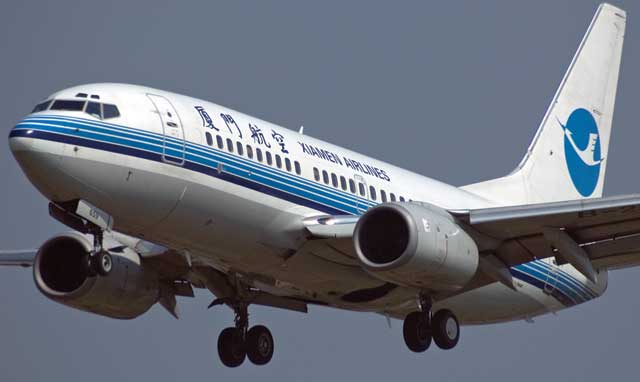Xiamen Airlines is typical of many of China's burgeoning home-grown carriers in that it has no shortage of young first officers among its flightcrew, but not enough experienced captains to cope with its growth. The airline, based in the southeastern city of the same name, has a fleet of 70 Boeing 737s flying on domestic services and to overseas destinations as far away as Singapore, but will take delivery of almost one new 737 a month for the next four years.
"Each airplane needs five to six sets of pilots, so that means the airline needs 60-70 captains a year," says Kwan Yue, a director of Singapore-based Flight Services, which is handling Xiamen Airlines' international recruitment. Like other Asian agencies running similar outsourced contracts, Yue's company solicits would-be recruits, screens them based on the airline's requirements and arranges their trip to China for the final selection process.
The challenge for Xiamen, as for other Chinese airlines, is that it does not have the capacity to upgrade enough of its first officers via a fast-tracked promotion programme. "They need about 3,000h, but reaching this point is only one part of it. More difficult is putting in place an upgrade programme the regulator approves of," says Yue. "Chinese airlines are resigned to the fact that the only way to reach their growth is to recruit foreign, experienced captains."
 |
|---|
| Xiamen pilots get three-year contracts |
These, he says, are required to have 500 pilot-in-command hours on type. Although there are more 737 pilots than of any other airliner in the world, it does mean Xiamen cannot recruit captains equipped to fly other types. "The airline does not have the time or resources to provide transition training," he says. However, the extent of the 737 fleet globally means Xiamen recruits from every continent, with the bulk coming from North America, Europe and the former Soviet Union.
Pilots receive three-year contracts and can opt for either a commuting arrangement - where they spend six weeks on station with two weeks of home leave - or a Xiamen-based contract, where they live in the city, work a normal rota and have a month's leave a year. While Yue admits many choose the overseas offer because families are reluctant to relocate, he says this is often because of a wrong idea about the country.
"Most of those who come to live in Xiamen are bachelors. A lot of foreign pilots who are married do not bring their family over because of worries about language and schools," he says. "The perception is that they will not be comfortable. But once pilots move over, communities begin to build up, and this is something the airline is keen to encourage. Xiamen is a new city with lots of amenities. Walking around it you wouldn't necessarily think you were in China."
Yue admits that the biggest rivals Chinese airlines face for recruits are the Gulf airlines. "People tend to look at them as first choice as it's closer to home and easier for them to hop on one of the airline's planes," he says. "There's also a wider foreign pilot community and language is perceived as less of a problem." However, he believes this will change as pilots assess the attractive salaries on offer from Chinese airlines, their improved links to the global air transport network and the increasingly ex-pat-friendly lifestyle on offer in many Chinese cities.
All the latest news, video and images from Zhuhai 2012Source: Flight International























